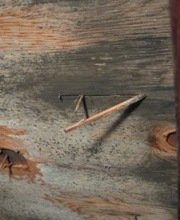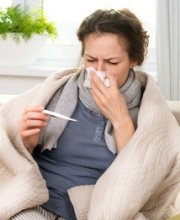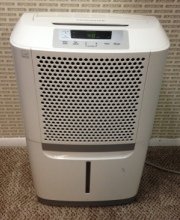Find a Mold Specialist Now
Click or Call, Toll-Free 24/7
What is Mold
Mold is a type of fungus. It is found everywhere around us, indoors as well as outdoors. We’ll tell you all the basics about mold and how mold in your home can affect you. You can also follow this link to read frequently asked questions about mold in the home.
Types of Mold
According to the Centers for Disease Control and Prevention, there may be more than 300,000 different types of mold. Some are primarily found outdoors, some grow mostly on food, and others are often found growing indoors.
Some types of mold commonly found inside homes include:
Alternaria – This mold is commonly found in damp places, like under leaky sinks and in showers. Many people are allergic to it and it can cause asthma in some people.
Aspergillus – This mold can be found on all sorts of organic materials in the home. According to the Centers for Disease Control and Prevention (CDC) it can cause allergic reactions, lung infections and other sorts of infections.
Cladosporium – This mold often grows on wood and on carpet. It can cause a variety of respiratory problems, including coughing, sneezing, difficulty breathing and pneumonia.
Penicillium – This mold is often found on wallpaper, carpet and insulation. It can cause sinus infections and an inflammation of the lungs.
Stachybotrys chartarum – This slimy black mold is sometimes referred to as black mold or toxic mold, although it’s not really toxic. It is harmful to your health, though. It can cause a wide range of health problems. It’s often found inside air conditioning ducts and in other places where there is continuous moisture, like around leaky pipes.
Of course, these are only a few of the many types of mold that may be found in homes. All types of mold can cause health problems and all can damage your home. If you want to know the specific types of mold growing in your home, you can hire a certified mold tester to test your home to find out. Here is how to find certified mold testers in your area.
Here is more on the types of mold found in homes.
How Mold Grows and Spreads
Mold grows, or reproduces, by making more mold spores. Those tiny spores easily travel throughout a home, floating in the air. When they settle on various surfaces, mold can begin to grow there. Mold grows best on damp surfaces, but mold spores can remain dormant yet viable for a long time until enough moisture is available for the mold to grow.
Mold spores are also easily inhaled, by the way, which often leads to health problems.
 Mold in a finished basement
Mold in a finished basementHealth Problems Caused by Mold
Exposure to mold can cause a number of health problems. Health problems usually result from the inhalation of mold spores and may include respiratory infections, allergic reactions, headaches, sore throats, depression and fatigue. While many people only experience minor symptoms from exposure to household mold, some experience serious or even life-threatening health problems. Infants and small children, elderly people, and those with pre-existing health problems such as respiratory disorders and disorders of the immune system are especially susceptible to mold-related illness. Follow this link to learn more about mold-related health problems.
How Mold Can Damage Your House
Mold feeds on organic materials, such as wood, paper and many types of fabric. It essentially eats away at the materials, causing walls, floorboards and other structures in the home to rot and eventually collapse. Follow this link for more information on how mold can damage your house.
Mold Removal
To prevent extensive damage to your home and serious mold-related health problems, any mold should be removed from your home as soon as possible. You can probably remove small amounts of mold yourself, but the Environmental Protection Agency recommends calling in a professional if mold in your home covers an area greater than three feet by three feet. It is also recommended that you hire a professional if you have mold in your home’s heating, ventilation and air conditioning (HVAC) system, if mold develops in a home that has been flooded with water that may be contaminated by sewage or other potentially hazardous substances, or if you have health problems that may be made worse by contact with mold.
Whether or not you plan to tackle the mold removal process yourself, you can get some free expert advice from an experienced professional by scheduling a free consultation in your home. A qualified mold removal professional will visit your home, inspect for mold, advise you about the work that needs to be done, and answer any questions you may have. Follow this link to find mold removal professionals offering free consultations where you live.
Return From What is Mold To Home Page
Privacy Policy Terms and Conditions Accessibility Do Not Sell My Information Disclaimer Contact Us




